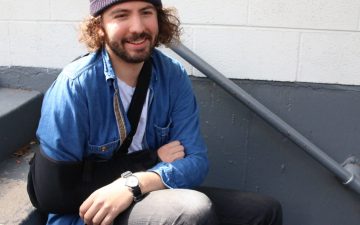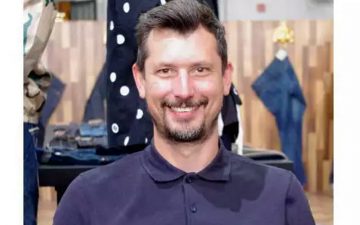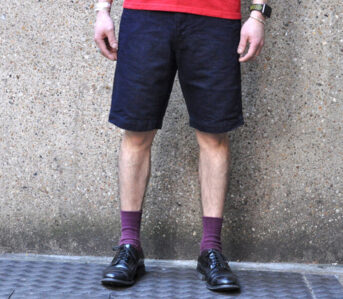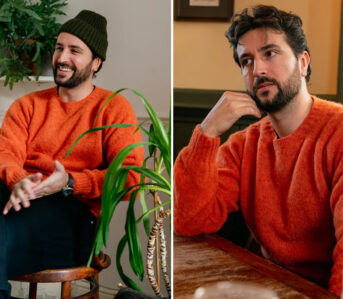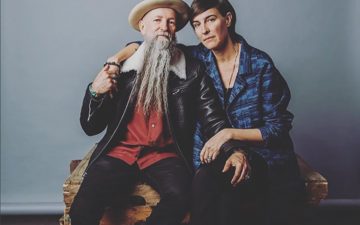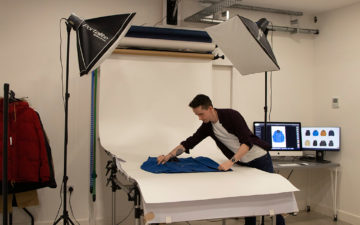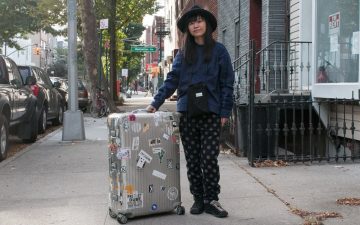In the realm of Japanese menswear, where age-old traditions intertwine with contemporary creativity, iconic brands like Fullcount, Studio D’Artisan, and the rest of the famed Osaka 5 – the Mount Rushmore of Japanese denim – have long held sway, their legacies woven deeply into the fabric of the beloved – and slightly obsessive – heritage menswear fashion niche.
But these brands are not only trusted for their denim. Many Japanese labels have also taken to producing garments from the selvedge of knitwear, loopwheeled cotton fleece. Loopwheeled cotton has become a staple in the world of quality menswear, with some heads being just as enthusiastic about it as the selvedge denim on their legs. As well as those aforementioned labels, brands like The Strike Gold & Buzz Rickson’s have also cemented themselves as longstanding and trusted producers of loopwheeled cotton sweats.
However, in the ever-evolving landscape of fashion, there comes a time when the winds of change blow through, and a new brand emerges to disrupt the established order. Enter Wonder Looper, a name that may be relatively new to the scene but carries the promise of a fresh perspective.
In this exclusive interview, we delve into the world of Wonder Looper, exploring the vision and aspirations of its founders, Bahzad Trinos and Risa Saito, the dynamic duo who seek to infuse modernity into the time-tested traditions of Japanese denim and heritage wear.
Let’s get into it.
William: Hey Bahzad and Risa, thanks for taking the time to talk with us. How are you guys doing?
Bahzad: Always well! Just trying to survive the Japanese summer heat.
W: For sure—sadly I don’t have that problem in London. Anyway, for those in our audience who don’t know you, tell us about yourself and how you got into this corner of the clothing world.
B: I’ve been in the apparel industry for over 20 years now. I got my start working in the denim department of a luxury goods department store in Canada. I became obsessed with denim and that led me to taking a position at Naked & Famous Denim—I was the first employee. I’m still there today, and I do everything from product development to social media.
Risa: I, too, have been in the apparel industry for about the same time. I was born and raised in Tokyo but went to university for fashion in California. After school, I worked for a surf brand and got into the denim industry working for Big John when I moved back to Japan. After a few years of that, I joined the Naked & Famous denim team and moved to Canada. If you didn’t already know, Bahzad is my husband, and in 2019 we moved back to Japan to start our life here where we still handle our N&F duties, albeit remotely.
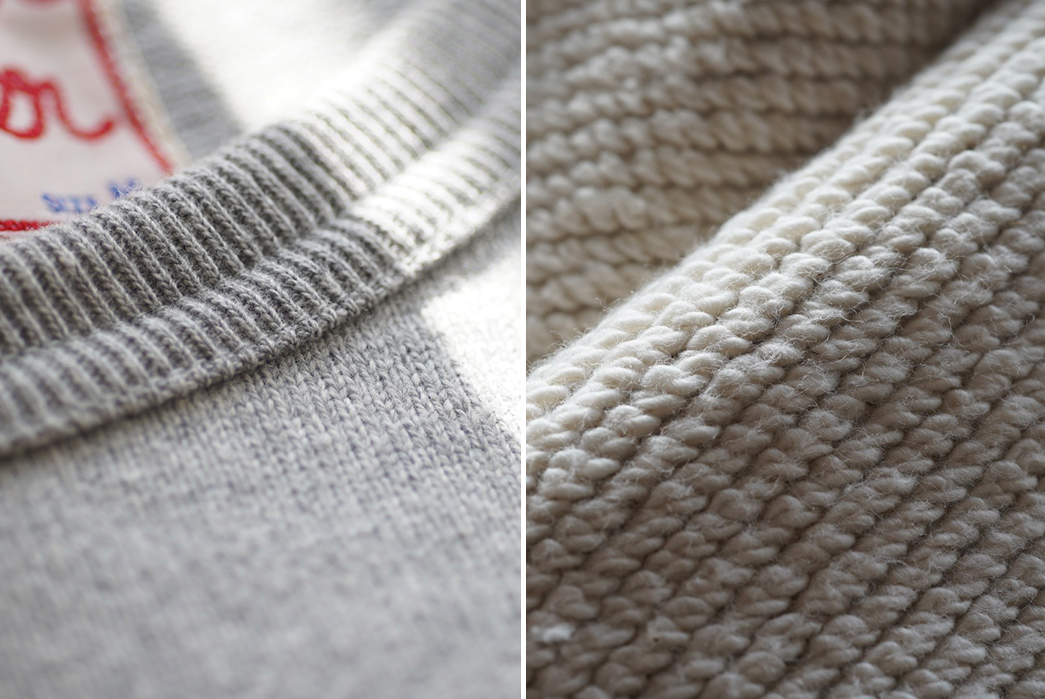
W: Naked & Famous alumni—awesome. Tell us about Wonder Looper. What is it and why did you start it?
B: Wonder Looper is a knitwear line started by Risa and myself. If you know anything about us, you know that we’re obsessive about fabric. During the pandemic, Risa picked up a vintage Japanese Treasure chain stitching machine. Not to be confused with a chain stitch hemming machine, which you’d typically use to finish the hem on a pair of jeans. This machine is used for embroidery. It’s all manual control, no computers, so you have to guide the needle with a crank underneath the machine. So, during the pandemic, Risa practised and practised on the machine, and over time requests for custom work started to come in. She’d embroider denim jackets, bags, and a lot of t-shirts.
The problem was, we were buying these blank tees that weren’t exactly the best quality. So, we thought, maybe we could custom order some blanks. But, us being us… We couldn’t just settle for anything, and soon our obsessive minds got to workin’, sourcing rare fabrics and the highest quality materials, finding the best factories and mills. It wasn’t long until we had a full-fledged line on our hands.
W: Sounds like the best, most organic way to start a brand, especially nowadays with so many fast fashion brands emerging out of nowhere. I suppose heritage menswear and Japanese denim aren’t the niches they once were. Competition is fierce, and it’s continuing to ramp up. Was this a concern for you starting out?
B: Not at all. I don’t even think competition is all that fierce. I can’t even think of a new brand, and I can list off a bunch of brands that were around in 2010 that aren’t around anymore. There was a lot more competition a decade ago, and there was a much smaller audience. Nowadays, average people get the concept of raw denim; it’s no longer just an internet forum thing.

Wonder Looper Double Heavyweight Tee, available for $104 from Redcast Heritage.
W: Those were the days. Interestingly, the stuff you make is heavy. Like, really heavy. Why? Was it experimental? Was there a gap in the market? Do you believe it leads to a better quality garment?
B: Not everything we make is heavy, but we do make some really heavy stuff. If our tees and sweaters aren’t the heaviest, they’re definitely up there. As to why, well, we try to make products that impress us. We follow our gut. If a fabric impresses us, then it’s a go. We’re not really thinking about gaps in the market; that kind of thinking has never crossed our minds. If I can spot a gap, then a bunch of others can too. Then it just becomes an arms race and that’s not really the way we like to create. I don’t want to be dictated by what somebody else didn’t do.
As for quality, what drives a better quality garment in our case is our experience and obsessiveness. But more so, our audience is quite discerning—people who really care about how something is made. That alone leads to a better quality garment. If you’re making for this crowd, you better come prepared.
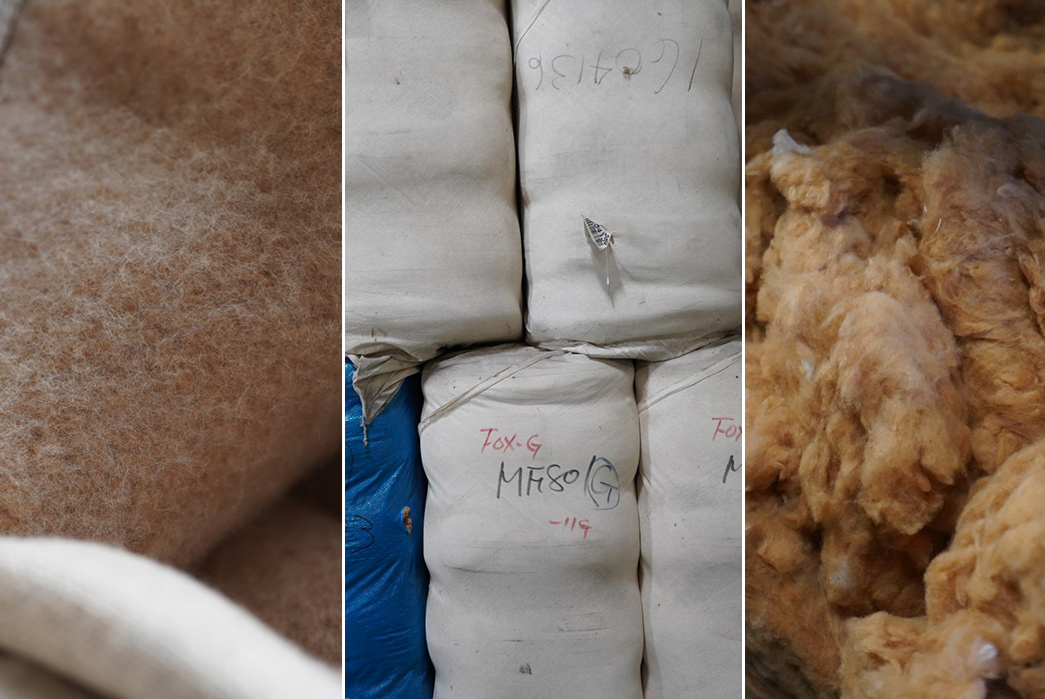
W: Tough crowd to please, for sure. Speaking of making garments, what sort of gear are you using to make your products and where are you making them? Do you have access to any vintage looms? Interesting manufacturing techniques?
B: Everything is made in Japan, from the fabrics to the sewing. The mills we use to knit our fabrics still operate century-old loopwheel knitting machines, as well as other vintage machines. We’ve seen our fair share of denim mills in Japan and even the shuttle looms are 50-60 years younger than these old knitting machines. The skill and know-how needed to operate these old machines is remarkable. There aren’t any warning lights telling you if something isn’t working, so the machine operators need to constantly check and make adjustments. If something breaks, well, it’s not like you can call the manufacturer for parts. They have to fashion things themselves. Just the fact that they are still operating these machines is a tribute to the craft.
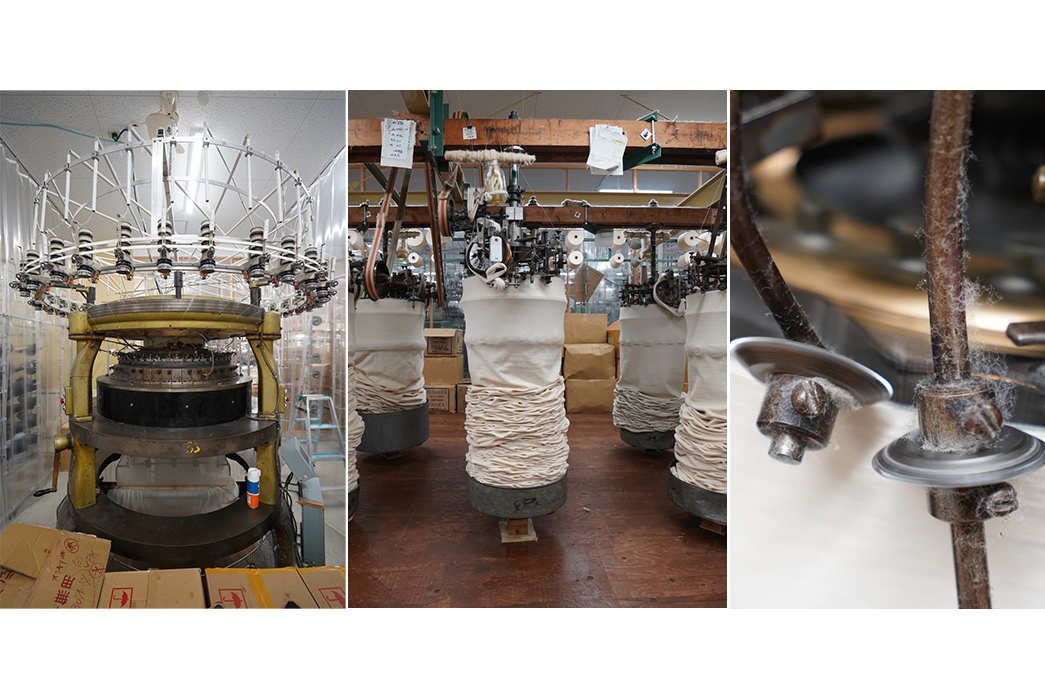
W: Preach. So, getting into the nitty-gritty: how do you select the cotton used to weave your fabrics? What are the qualities you look for and why?
B: The type and quality of cotton selected depends on the garment we’re creating. Varieties of cotton, and how they are spun, will determine the overall feel. So, it’s important for us to understand the benefits of the cotton type along with all the steps involved with spinning the yarn. We happen to work with a spinning mill capable of spinning cotton on old-school machines. The real benefit for us is the fact that the spinning isn’t uniform due to the age and natural inefficiency of the machine. So, the resulting yarn has a naturally uneven “slub” yarn.
Slub is one of those details that gives a fabric a hand-spun, natural look, but the fact is, practically all of the slub yarn created today is made on computerized machines that control the speed at which the yarn is spun. This creates the unevenness in the yarn. If you look at this type of yarn you’ll actually see patterns; it’s not random like natural slub. This is such a small detail that probably nobody cares about, but I care about it because if you’re going to use these vintage knitting machines, I think it’s important that the yarn used on these machines is also period-accurate. If you want to make a t-shirt the old-school way, sure, you can use these old machines, but it’s another step to also use authentic vintage-style spun yarn.
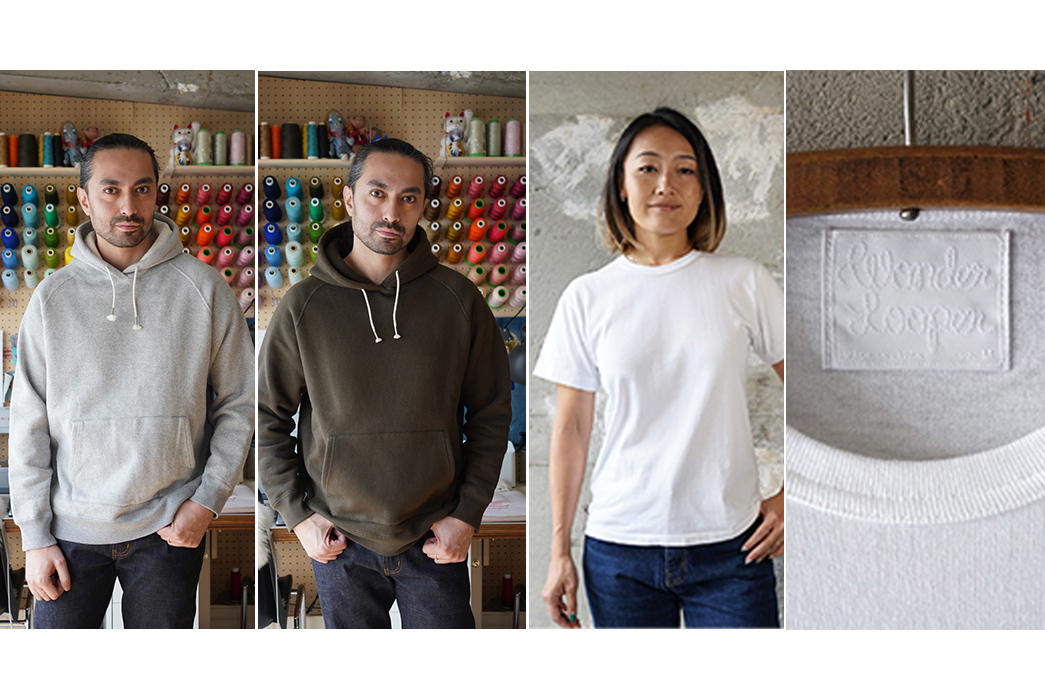
W: Crazy to think that all that work goes into making one of your tees, but I’m here for it. Speaking of t-shirts, right now your focus is pretty narrow in terms of the breadth of your product portfolio. What’s next for Wonder Looper? Do you have ambitions to move away from the torso and outside of sportswear or are you happy where you’re at?
B: We’ve got shorts and sweatpants coming soon, and a variety of new fabrics in the works. Wonder Looper is going to remain a knitwear-focused brand. There is so much to explore in the world of knitted fabrics and natural materials, so we’re not in a rush to expand too quickly. If we grow big enough, we’ll open a store here in Japan.
W: Are there any brands out there right now that you’re especially into? Why?
B: Risa and I are both really into Yuketen footwear. Between us, we own about 70 pairs. We’ve been collecting for about 15 years.
W: I think you’ve got a mini museum on your hands there, guys. Moving away from Wonder Looper slightly, can you guys talk a bit about your own personal style journeys? Where you started and where you’re at now.
B: We’ve both been pretty set in our ways. Over the past 10 to 15 years nothing much has changed. Our lives revolve around jeans, so everything that goes with that. We’re very casual: jeans and tees are pretty much our uniform. Before that, I was mostly the jeans and tees you’d wear as a young person.
W: Describe a typical Wonder Looper customer.
B: Our typical customer is someone who makes purchases with a clear intention and is discerning in their choices. They have a deep understanding of fabrication and value quality in the products they buy.
Lightning round
Fashion trend you can’t wait to see the back of?
Are people still wearing ugly sneakers to make some kind of point? I hate those.
Sadly, yes. Straight or slim fit jeans?
Straight
Nep or slub?
Both
A bit greedy, but I’ll let you have it. Cuff or hemmed jeans?
Raw hem and/or rolled
Favorite clothing/goods store?
Tate + Yoko
Wonder Looper products are available to buy from Redcast Heritage.

